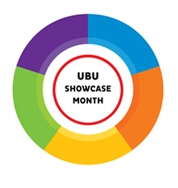
Help – I’ve been forced to take a year out!
It’s that time of year when many students receiving their degree results have to make a sudden change of plan. We’re busy right now at the Careers Service seeing people who are rethinking what seemed like career certainties just a few months ago, either because they didn’t get the class of degree for which they’d hoped, or occasionally because they achieved a much higher degree result than expected and they hadn’t applied for any jobs.
Whichever position you find yourself in, it can be a daunting prospect to be graduating into months of completely unstructured time, but this doesn’t have to be a disaster. Employers are very interested in how people cope with setbacks, as well as how they demonstrate resilience and move on, so the focus should be on treating the unexpected time out as one big potential learning experience. It could even leave you with a stronger CV than the one with which you start your unplanned year out!
Try to maintain a sense of purpose
What employers will be looking for when you do start applying for graduate jobs is a sense of purpose: that you were able to set goals for yourself, plan ahead and structure your time. It can be incredibly difficult to motivate yourself when you have empty days looming ahead of you after the bustle of university life, but it’s important to have targets both in the long term – the job you want – and in the short term. What will you be doing each day to keep moving forward? How will you organise your days? It’s crucial to have something to aim towards so that you can maintain your motivation. Staff at the Careers Service are happy to talk through your ideas and help you to plan ahead, and we are open throughout the summer if you would like to come in for a chat.
Get some work experience
A great use of a year out is to find work experience and sample some different jobs and organisational cultures, as this could help you to make much more informed career choices further down the line. More work experience can also help to mitigate against the effect of a 2:2, as it can flesh out your CV and show that you are completely capable of doing the kind of work you want to do. The media has done a great job of convincing people that there are no jobs out there, but we know from talking to employers that this isn’t true. You will, however, need to be persistent to get your foot in the door. You can start by looking at the vacancies advertised on the Careers Service web site, and there are several national newspapers that have excellent online job databases, such as the Guardian.
You will also need to make speculative approaches in person, by phone & email and in writing to employers that interest you. To do this effectively, make sure that you have done your research before you make contact. Read the company’s web site carefully and make sure that you are clear about the kind of person, skills and experience that they are looking for, as well as reading related publications and web sites to fill in the bigger picture of what is going on in the sector that interests you. There is information on the Careers web site about how to make a good speculative application.
Finally, try to make use of any contacts that you have to find out about any work experience opportunities. Talk to family and friends about who they know or get back in touch with any previous employers who could be useful to you. You can also use the Careers Network of Bristol graduates who are all willing to answer questions about their work and career paths and, in some cases, may be able to offer work experience in their organisations.
Other options
Many students also consider volunteering opportunities, if finances permit, getting involved in a range of projects where you can develop and use skills that employers will value in your applications. These can be local to your community or they could be an opportunity to travel abroad. If you’ve always wanted to travel then this could be your ideal time to do it, as long as you can provide evidence of learning and development along the way by taking short-term work or getting involved in development projects. However, don’t forget that applications for graduate schemes open in the autumn in the year prior to you starting work, and sometimes even earlier, so you will need access to a PC to submit yours on time. You will also need to be available for interviews should your application be successful. If you don’t get organised for this crucial period then you might be looking at even more unscheduled time out, so it will pay off to have a plan you can stick to.
Follow up and support
However you decide to use an unscheduled year out, do remember that you can continue to use the Careers Service for a further three years if you are a University of Bristol graduate. We can provide advice, information and guidance in person, by telephone and also by email, so there is no need to panic if you are on the other side of the world and need someone to give you feedback on your CV! Just remember to keep track of what you are learning from your experiences, and you should be a solid candidate for the jobs you start applying for in a few months’ time. Good luck!
Dr Tracy Johnson, Careers Adviser







